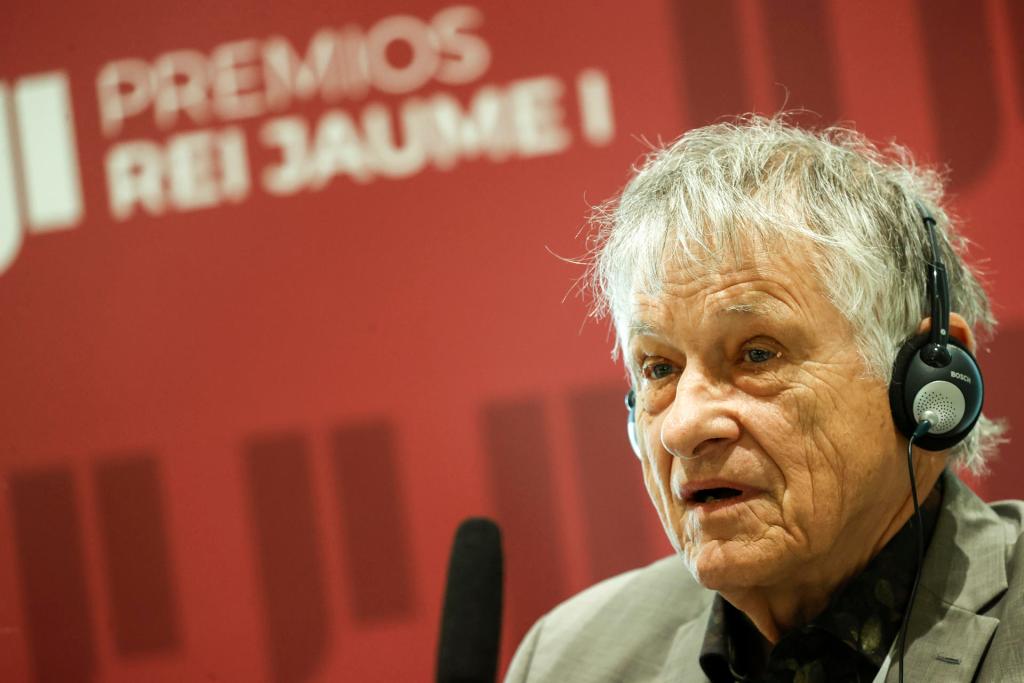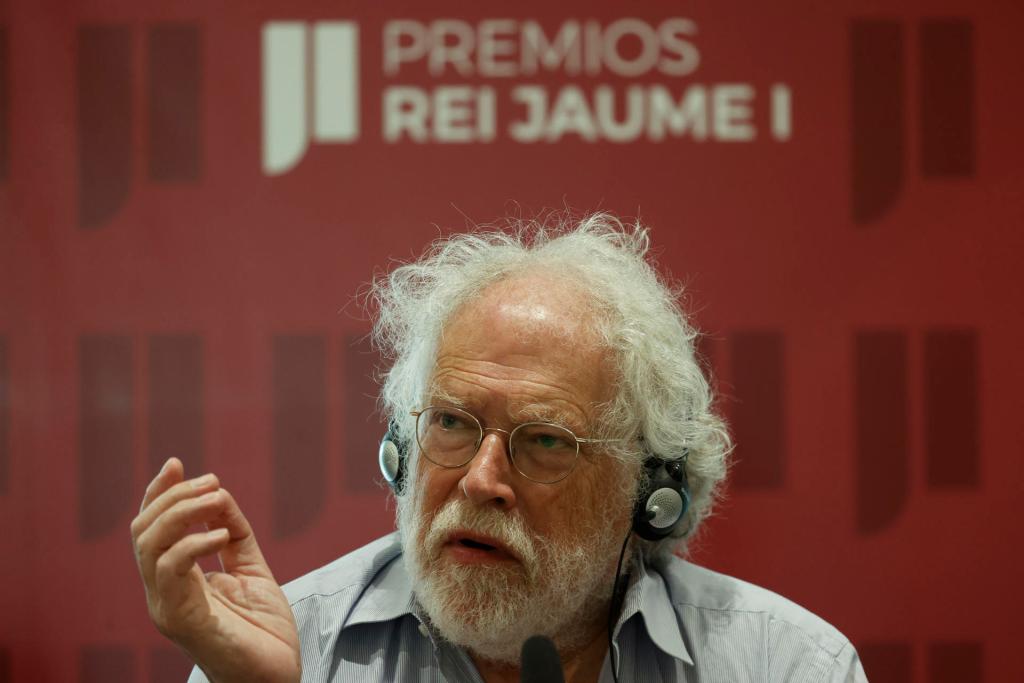Valencia (EFE).- Artificial Intelligence is “extremely useful” for science but it is also “extremely important to regulate it from the beginning” due to the role it can play even in risky situations, such as wars.
This is how the 2022 Nobel Prize in Physics, Anton Zeilinger; for Chemistry 2022, Morten Meldal, and for Physics 1985, Klaus Von Klitzing, at the press conference that they have offered on their participation as juries for the Rei Jaume I Awards, which will be decided this Tuesday.
“Artificial Intelligence is extremely useful in science and we would like to use it, but it is also extremely important to regulate it from the beginning and have an international regulation in force”, Morten Meldal considered, when asked about the focus of this 35th edition, which was focuses on proclaiming the need to lose fear of AI through information and knowledge.
In this sense, he stressed that Artificial Intelligence is “perhaps the most powerful thing that can be used in the defense industry” and that this technology, in this area, “can create a problem with regulation if it is used in conflicts warlike”.
For his part, Klaus Von Klitzing has said that this technology “is not going to create new knowledge” but, while scientists and researchers work to “do something new”, artificial intelligence “looks back, towards the knowledge we already have and organizes them in another way.

An Artificial Intelligence with transparency and regulation
Regarding the challenges facing Artificial Intelligence, he highlighted the need for “good unmanipulated information”, transparency and regulation: “Most people don’t know how information can be manipulated, and we need transparency to to detect how images can be modified, for example”.
This has also been stated by Anton Zeilinger, who, however, has alluded to the advantages of artificial intelligence such as the development of quantum experiments that humans would not be able to achieve.
However, he recalled that the AI itself “can be totally stupid” and that its “intelligence” depends on the human being “contributing with his thinking.” Regarding the future, he has predicted that “there will come a day when you don’t even have to turn on your computer.”
On all these developments, the Nobel laureates have agreed on the need to know how to communicate scientific advances and their consequences for daily life, at a time when “the number of scientific journalists, of people capable of writing a good article about science,” according to Zeilinger.
For the 2022 Nobel Prize in Physics, in the media landscape “a counter-opinion is sought for each opinion” and it is given a voice, pursuing a supposed balance that, he has warned, makes non-scientific opinions visible, such as the one that, during the pandemic, put into question. doubt the efficacy of vaccines.
“The problem is that politicians face many different people’s interests and don’t know how to make a decision,” said Von Klitzing, who gave the debate on issues such as the energy transition as an example, in which he highlighted the capacity of Spain to be “a beacon of development” of green energies.

Children’s enthusiasm for science
Asked about the pending tasks in scientific and research matters, Zeilinger considered that “the most important thing is that young people continue to be excited about science.”
“We see that children love science, regardless of whether they are boys or girls, but then things change, partly because of peer pressure, partly because science is not seen as cool,” he said.
In his opinion, this does not respond to the fact that the developments of science are not attractive, but to communication: “If people are sitting there with their mobile phones, that is not a good way of contemplating the future.”
For Klaus Von Klitzing, “you have to start from kindergarten” to promote interest in research, something to which he finds a biographical logic because “younger children, while discovering the world, seek new knowledge to understand the world and you have to help them”.

“Click chemistry” and quantum physics
Asked about the future research avenues that are opening up in their fields, the 2022 Chemistry Prize winner, Morten Meldal, has alluded to “click chemistry”, which studies mechanisms to join small units together to create substances quickly.
“It allows us to do things that we couldn’t do before because it is orthogonal and creates a chemical universe in which molecular robots are possible, for example, or the creation of molecules that recognize cancer cells and can kill them from within,” he said.
In his field, quantum physics, Klaus von Klitzing has lamented that the general public does not know the real possibilities of quantum, seen “as magic”: “We need new terms for new science.”
As for specific developments, he stated that quantum sensors would be used more widely, especially in industry, than quantum computers, and he stated that specialists and researchers are also “responsible for curbing certain expectations”.
“Quantum is natural, but it is natural magic”, highlighted Zeilinger, for whom “more than 50% of our national products will be based on quantum technique”.
Beyond that, he has pointed out how difficult it is to make any kind of technological prediction: “Let’s look at what was written about future technologies 25 or 30 years ago; Do you find the internet, mobile phones? No, I believe that important things are impossible to predict.
For this reason, he has opted to “keep many avenues open” and has said that “the most interesting thing” about current science is that one can “talk about today, but not about the future.”






